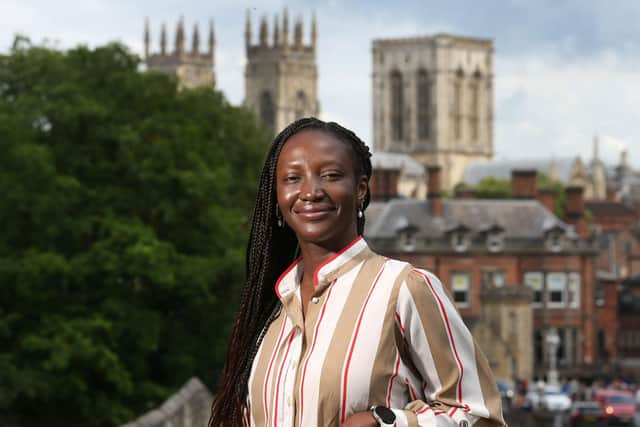New strategy announced to make York the North's first anti-racist city
Campaign group Inclusive Equal Rights UK (IERUK) has set out a five-year plan to combat its research findings.It found that 6.3 per cent of the City of York Council’s 2,600 workforce are from ethnic minorities, which has increased from 5.0 per cent in 2019, compared with 10.1 per cent across the national public sector.Of the nine members of the City of York Council’s senior management team, one identified as someone from the BAME (Black Asian and Minority Ethnicity) community, while its executive portfolio is entirely white.
There are fewer than 10 minority ethnic police officers in York and just five per cent of the 734 staff at the Tees, Esk and Wear Valleys Mental Health Trust are BAME.
Advertisement
Hide AdAdvertisement
Hide AdHaddy Nije, chair of IERUK, said: “This work matters because the data widely documents that racism in York is casual, systemic, and structural.“It is manifested in many forms that disproportionately and negatively impact the lives and livelihood of people of colour.”The research also found that in 2022 hate crime incidents in the North Yorkshire Police force area exceeded 1,000 for the first time and approximately two-thirds were race-related.Key initiatives of the strategy, developed with academics at York St John University, include asking employers to sign an anti-racist pledge, targeted outreach for underrepresented communities, a racial equity commission to review city policies and unconscious bias training for all city employees.


Matthew Reason, Institute for Social Justice director at York St John University, said: “York St John University is committed to addressing inequalities, injustices and challenges facing society today and we are proud to have provided research that has helped IERUK to develop this important strategy.
“Tackling systemic racism requires a sustained, collaborative approach.
“We hope this five-year plan provides a solid foundation for our city to become more inclusive and equitable for everyone.”According to the Office for National Statistics (ONS), in 2021, 92.8 per cent of people in York identified their ethnic group within the “White” category, compared with 94.3 per cent in 2011.Meanwhile, the population of York’s BAME population, grew to approximately 14 per cent, meaning one in seven people are from ethnic minorities.
